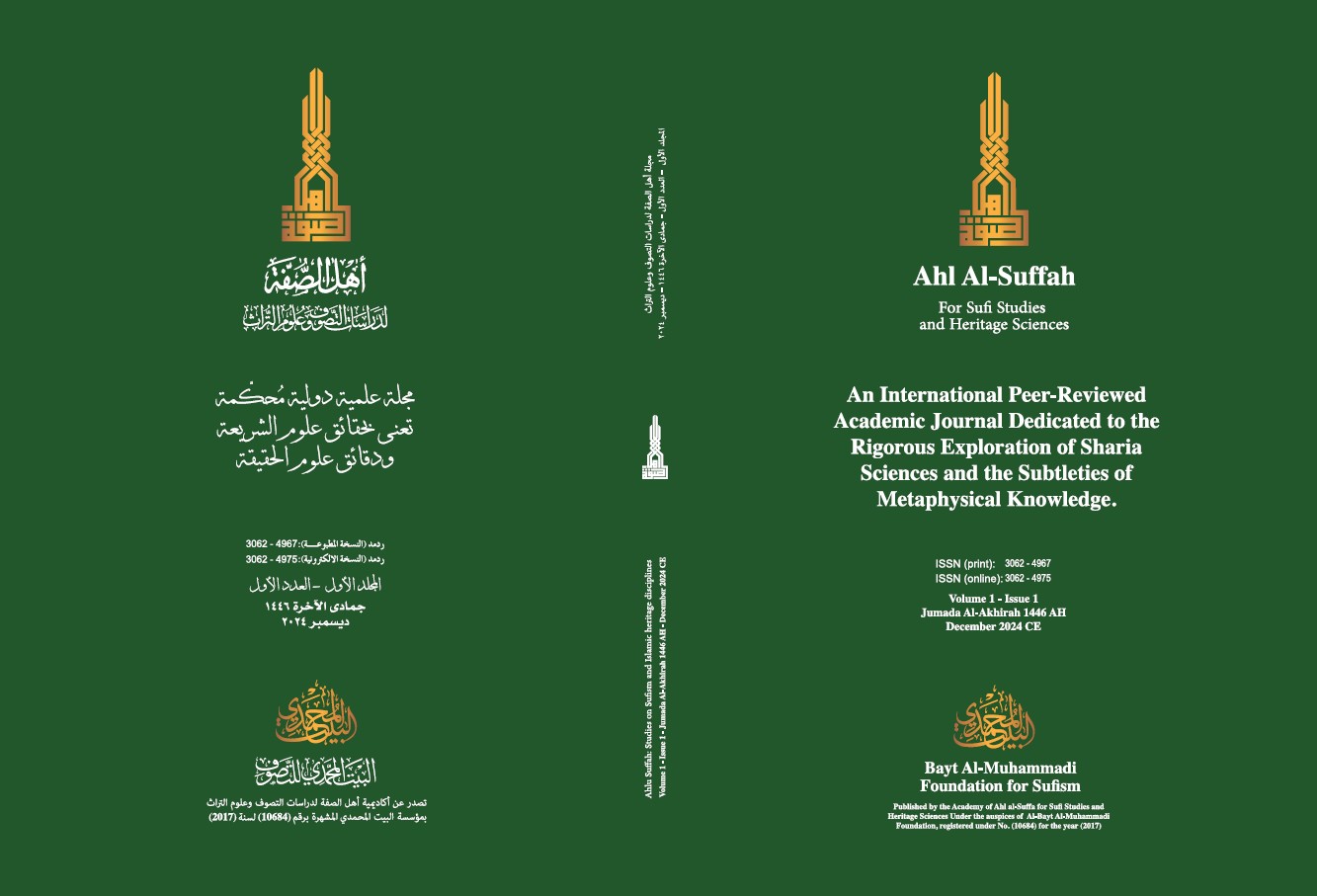MONSIEUR IBRAHIM AND THE FLOWERS OF THE QURAN BY ÉRIC-EMMANUEL SCHMITT: A SPIRITUAL AND ETHICAL READING
DOI:
https://doi.org/10.70703/1enxpd54Keywords:
Monsieur Ibrahim and the Flowers of the Quran, spiritual reading, ethics, humanism, Sufism, interfaith dialogueAbstract
Abstract (English):
This research presents a humanistic reading of Monsieur Ibrahim and the Flowers of the Qur'an by Éric-Emmanuel Schmitt, employing an interdisciplinary analytical approach. The study aims to highlight the novel’s ethical, spiritual, and educational dimensions, while underscoring its ability to promote interfaith dialogue and foster human reconciliation. By combining literary, theological, and philosophical lenses, the research brings to light the narrative’s symbolic richness and universal resonance. The methodology is based on a thorough textual analysis, incorporating internal references (notable quotations, Qur'anic symbolism, and Sufi elements) alongside external sources (interviews with the author and parallels with other figures, such as Gad al-Qur'ani). The analysis also traces the protagonist Momo’s personal development through his transformative bond with Monsieur Ibrahim. The findings reveal that this relationship helps Momo overcome the trauma of parental abandonment and rebuild his trust in himself and others. Monsieur Ibrahim, portrayed as a wise and compassionate Sufi figure, offers the adolescent a life philosophy grounded in attentive listening, patience, spiritual reflection, and kindness. The Qur’an, rather than appearing as a rigid or dogmatic text, emerges in the novel as a source of accessible and inclusive wisdom. Ultimately, the work stands as a literary call to spiritual humanism, capable of transcending religious, cultural, and social boundaries.
Abstract (French):
Cette étude propose une lecture humaniste du roman Monsieur Ibrahim et les fleurs du Coran d’Éric-Emmanuel Schmitt, fondée sur une approche analytique interdisciplinaire. Elle vise à mettre en évidence les dimensions éthiques, spirituelles et éducatives de l’œuvre, en soulignant la manière dont celle-ci promeut le dialogue interreligieux et la réconciliation entre les êtres humains. En croisant les perspectives littéraire, théologique et philosophique, la recherche met en lumière la richesse symbolique du récit et sa portée universelle. La méthode adoptée repose sur une analyse textuelle approfondie, mobilisant à la fois des éléments internes à l’œuvre (citations significatives, symbolisme coranique, références mystiques) et des sources externes (entretiens avec l’auteur, rapprochements avec d’autres récits comme celui de Gad al-Qur’ani). L’étude suit également l’évolution du personnage principal, Momo, à travers sa relation transformatrice avec Monsieur Ibrahim. Les résultats révèlent que cette relation permet à Momo de surmonter l’expérience douloureuse de l’abandon familial et de reconstruire sa confiance en soi et en autrui. Monsieur Ibrahim, figure bienveillante et soufie, lui transmet un art de vivre fondé sur l’écoute, la lenteur, la spiritualité et la générosité. Le Coran, loin d’être perçu comme un texte dogmatique, y apparaît comme un réservoir de sagesse accessible. Ainsi, le roman se présente comme un manifeste en faveur d’un humanisme spirituel et inclusif, capable de dépasser les clivages religieux et sociaux.
Downloads
References
"Jaad Allah the Jew." IslamicBooks.info. Accessed June 23, 2025. https://islamicbooks.info/H-26-V-Arabic/V-Jaad-Allah-the%20Jew.htm.
Jîlî, Abd al-Karîm al-. De l'Homme universel : Extraits du livre Al-insân al-kâmil. Translated and commented by Titus Burckhardt. Paris : Dervy-Livres, 1975.
Juignet, Patrick. "Humanité ou sagesse ?" Philosophie, science et société, 2015. https://philosciences.com/humanite-sagesse.
Monnot, Guy. "L'humanité dans le Coran." École pratique des hautes études, Section des sciences religieuses. Annuaire 103 (1994-1995) : 19-29.
Rivara, René. "Réflexion sur le genre du récit." In Études narratologiques contemporaines. [Publication details require verification]
Schmitt, Éric-Emmanuel. Interview by Baptiste Liger. Lire, no. 310, février 2003, 103.
Schmitt, Éric-Emmanuel. Interview by Brigitte Kernel. Un livre, un jour, France Inter, 2001.
Schmitt, Éric-Emmanuel. Interview by Josiane Grinfas-Bouchibti. In Monsieur Ibrahim et les fleurs du Coran, 9-15. Paris : Éditions Hatier, collection Profil/Lettres, 2006.
Schmitt, Éric-Emmanuel. Monsieur Ibrahim et les fleurs du Coran. Paris : Albin Michel, 2001.
Schmitt, Éric-Emmanuel.. Author's note to Monsieur Ibrahim et les fleurs du Coran. Paris : Albin Michel, 2001.
Downloads
Published
Issue
Section
License
Copyright (c) 2025 Ahl alSuffa for Sufi Studies and Heritage Sciences

This work is licensed under a Creative Commons Attribution 4.0 International License.






